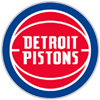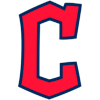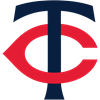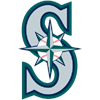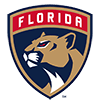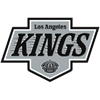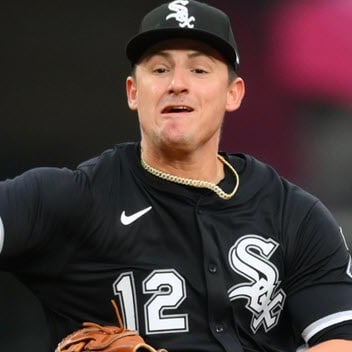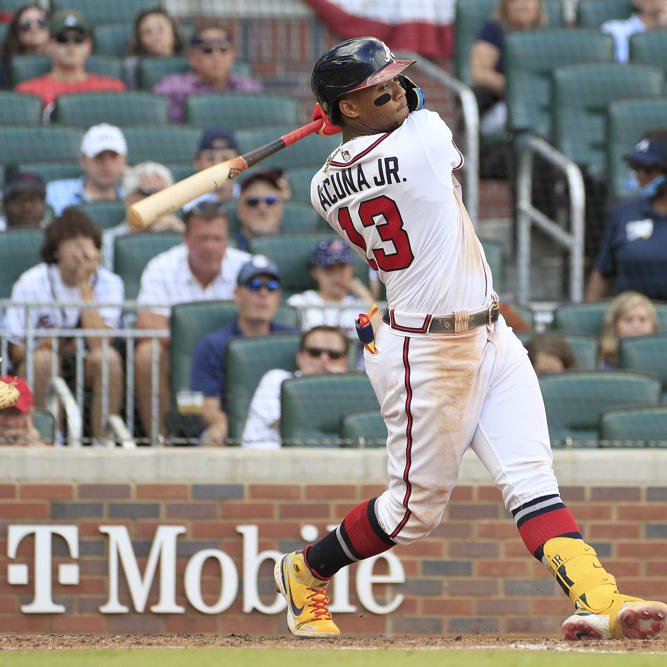We're slightly less than a quarter of the way through the season and many of us are already worn from battle, as are many of our players. Here are a few random thoughts and observations:
• It might not shock you, but the same three teams that led the majors in stolen bases last year happen to rank 1-2-3 through the first three weeks: the Brewers, Reds and Diamondbacks. Having the right combination of speedsters is certainly clutch, but having a run-friendly manager provides the key for the ignition. The Rockies are the only team with less than 10 bags this year.
•David Dahl will be back eventually and the Rockies will soon have a good problem on their hands shuffling outfielders, along with Ian Desmond and Mark Reynolds at first base. Reynolds has been a pleasant surprise, ranking with the big boys with 12 home runs. It's been a full renaissance for Reynolds, who has hit 30-plus homers three times, including 44 in 2009. His 21.6 percent strikeout rate is a career low. With the logjam all but certain, now may be a good time to test the market on Reynolds to see what you can get. No smart owner in your league will trade Maikel Franco for him, but who says all the owners in your league are smart?
• Despite all of the unsexy that is Melky Cabrera, roto player, he's someone I'm scooping up where dropped. He's a .285 career hitter batting .234. This
We're slightly less than a quarter of the way through the season and many of us are already worn from battle, as are many of our players. Here are a few random thoughts and observations:
• It might not shock you, but the same three teams that led the majors in stolen bases last year happen to rank 1-2-3 through the first three weeks: the Brewers, Reds and Diamondbacks. Having the right combination of speedsters is certainly clutch, but having a run-friendly manager provides the key for the ignition. The Rockies are the only team with less than 10 bags this year.
•David Dahl will be back eventually and the Rockies will soon have a good problem on their hands shuffling outfielders, along with Ian Desmond and Mark Reynolds at first base. Reynolds has been a pleasant surprise, ranking with the big boys with 12 home runs. It's been a full renaissance for Reynolds, who has hit 30-plus homers three times, including 44 in 2009. His 21.6 percent strikeout rate is a career low. With the logjam all but certain, now may be a good time to test the market on Reynolds to see what you can get. No smart owner in your league will trade Maikel Franco for him, but who says all the owners in your league are smart?
• Despite all of the unsexy that is Melky Cabrera, roto player, he's someone I'm scooping up where dropped. He's a .285 career hitter batting .234. This may sound lazy, but it's basic math. The average will rise. His ISO and hard-hit rate is down, but we're not adding him for a power boost. All of his other metrics are on par with everything else we've seen. Just a few days ago, I tweeted good fortune to slow starters Devon Travis and Kevin Kiermaier and they've gone bananas since. Not everyone is "bouncing back" from slow starts, but I'll put my money on Melky doing so. He hit .343 last June and July.
•Matt Carpenter won't maintain a 20 percent walk rate, but only Paul Goldschmidt has more walks through six weeks (31) than Carp's 30. He's the Cardinals' best weapon, and I'm staying strong on my spring prediction of his first 30 home run season. Most important, his value having eligibility at three infield positions cannot be overstated.
• I rarely peruse defensive and fielding stats during my winter prep, but I did read a lot about how great both the Royals' infield and outfield defense was going to be this season. This piqued my interest with the rotation, as we all know we can use all the help we can get with our pitching staff. Lo and behold, there's Jason Vargas, still sporting an ERA around 1.00 and a WHIP less than 1.00. It's a reason why Nathan Karns was on so many of our watch lists. The Royals rank third in UZR (ultimate zone rating) this season behind the Reds and Phillies. Meanwhile, the Mets were expected to be sport the league's worst defense, yet appear to be ahead of the curve rated as the 20th-ranked team in UZR. Of course, eye test (especially for Mets fans) and what we've seen happen to their starting pitchers tells another story altogether.
RISERS
Keon Broxton, OF, MIL
Along with Mookie Betts, Mike Trout and Jose Bautista, Broxton was one of baseball's most productive hitters last week. He hit a pair of homers, drove in seven, scored eight and stole a couple of bags to boot. Broxton hit .400 (10-for-25) for the week, raising his batting average to a respectable .270. The strikeouts were par for the course (eight last week), though it was an improvement — he reduced his strikeout rate from 42 to 37 percent. Broxton's recent rising is simply another reminder of the importance of patience. A popular 10th-round draft target in 15-teamers, Broxton's stock rose following countless hype pieces across the industry. His slow start notwithstanding, there's plenty to get excited about, particularly in a lineup that led the majors in stolen bases last season and has shown no signs of slowing down on the basepaths. Broxton has nine swipes already and is well on his way to 30-plus. Broxton is not hitting the ball as hard as last season (HH% down from 43 to 35 percent) and is taking the free pass much less often (BB% down from 15 percent to 6.6). He has posted a strong home split (.394 wOBA, compared to .296 on the road), but we never get cute with benching a guy who can boost all five roto cats in a given week. The 27-year-old former third-round pick could post a fine line this year, though his tendency to swing and miss often will keep his batting average from benefiting lineups with the rest of the categories.
Kevin Pillar, OF, TOR
Entering Week 7, Pillar has just one less hit (48) than American League leaders Starlin Castro and Corey Dickerson. What a world we live in. He is making the most of his opportunity leading off for the Blue Jays — a spot Devon Travis failed to take advantage of. Pillar did spend some time as a leadoff hitter last season, though the experiment did not last long as he posted a slash of .198/.231/.291 in just 86 of last season's 548 at-bats. This season, Pillar has seen a respectable boost in his walk rate (from 4.1 to 7.7 percent) and is boasting a .369 OBP after managing a rate of about .300 the last three seasons. He offers a nice blend of speed with a touch of power, but only time will tell if he can maintain the role at the top of the lineup this time around. That's where he'll play for the foreseeable future, and it's where much of his value is derived from, especially with Jose Bautista heating up and Josh Donaldson expected back soon. Come year-end, I'd expect Pillar to finish with a batting average in the .270-.285 range with 12-15 homers and about 25 steals. That's certainly playable in all formats.
Yasmani Grandal, C, LAD
Perhaps I'm hypersensitive as a Dodger fan and Grandal truther (draft target last two years), but I'm almost certain he is one of baseball's streakiest hitters. Grandal hit .225 in April and over the course of the last 15 days has raised his batting average to .292. Much of this due to an eight-game hitting streak, including three three-hit games in his last four. Grandal is most valuable in OBP leagues. His 10.7 percent walk rate dips below his career rate of 14 percent, and there's no reason why he doesn't raise it back to his accustomed levels. Grandal has also seen a dip in his hard-hit rate (from 39.0 percent to 33.7 percent) as well as his ISO (.249 last year, .189 this year). But there really isn't much cause for concern for a guy with only four homers who smacked a career-high 27 last year. If anything, I believe he's due for a positive outlier batting average season. I don't expect him to repeat those 27 from last year, but a solid 20-75-.275 season is certainly in the cards. Grandal was drafted as a top-5 catcher and in that lineup, should finish the year returning value on his draft slot.
Alex Wood, SP, LAD
A highly touted prospect (2012 second-round pick). A southpaw. Only 26 years old. Starts half his games in pitcher-friendly Dodger Stadium. There's so much to love here, and we're talking about a waiver wire arm in a season where we've lost Noah Syndergaard, Madison Bumgarner and now possibly Carlos Carrasco for significant time. These type of free-agent adds can help save one's season. Of course, Wood was drafted in all 15-teamers and most 12'ers, but was dropped early and often without a rotation start to open the season. He has yet to surpass six innings in any of his starts, but what he's done in those innings has been magical. Case in point: his last start. Ten strikeouts and just one walk allowed against the Rockies, at Colorado. Earlier in the week, 11 whiffs and one walk over five innings at home against a woeful Pirates squad. Wood's arm slot had been dropping in consecutive seasons, but he's raised it back to his rookie year level, and with it has come an increase in velocity. We know the capability of lefty arms in Dodger Stadium, and Wood looks like he's going to be a gem for his owners. It won't be without warts, as is the case with just about everyone (Kershaw included), but we're talking about a starting pitcher who could legitimately post top-25 numbers.
Eddie Butler, SP, CHC
I targeted Butler in my no-moves slow drafts in February and added where I could in 12-teamers for Robert Gsellman this week. Butler came out of the same draft as Wood in 2012, but one round earlier (15th overall) and was the big, pedigreed arm coming up through the Rockies' system before Jon Gray mania began. My interest in Butler this spring came out of a small glimmer of hope that he had a chance to crack the rotation of his new squad, the Cubs. Butler dominated over five Triple-A starts (1.17 ERA in 30 IP) but managed a strikeout rate just short of 14 percent. After all, Butler isn't a dominant hurler but does throw hard. He has a legitimate arsenal of five offerings, including a fastball that consistently hit 95 in his first start this season — two miles per hour faster than last season. Butler allowed just two hits in six innings against the Cardinals last week, striking out five. He will get another opportunity at home against the Brewers on Friday and in Wrigley once again the Giants next week. We can't just drop a solid arm in 12-teamers to take a shot, but if you have a drop, Butler is worth exploring. At the very least as a stash until we see another one of his outings.
FALLERS
Khris Davis, OF, OAK
If you think Grandal is streaky, you haven't seen nuthin' yet. After crushing 10 longballs in April, Davis has yet to go yard in May. He's looked utterly atrocious at the plate, connecting on just six hits (one double) while striking out 17 times in 46 at-bats. Davis is taking walks at nearly double last year's 6.9 percent rate (11.6 percent this season) but is striking out at a career-high 31.3 percent. He is truly the ideal DFS play as you simply roster him when he appears to be locked in and stay far away when he's not. Davis has actually been more disciplined than in previous years chasing pitches outside of the strike zone. He heads into Week 7 with a 22.4 percent O-Swing% compared to a 31.2 percent rate last season. As it goes with Khrush, you take the good with the bad knowing that the numbers will be there come year's end. Only a substantial injury will keep Davis from surpassing the 30-homer mark and he could easily make another run at 42 this season.
Maikel Franco, 3B, PHI
Franco is supposed to be the future in Philly. A perennial All-Star. An annual 25-100 guy. Expectations are rather high for the 24-year-old who has played just a season and a half in the big leagues. Why wouldn't they be? After all, he was a massive prospect. Franco crushed 14 bombs in his half-season debut then followed with a solid 25-homer season in 2016. He appears to be mature, hard working, disciplined and has showed nothing but healthy plate patience (career seven percent walk rate, 16.5 percent strikeout rate). Five homers with 25 RBI through six weeks is not too shabby, but the offensive surges have come sporadically. Heading into this week, Franco is hitting just .207 with a .278 OBP — both team lows. Franco even hit sixth for the first time in his career Saturday and took one of the days off from Sunday's doubleheader. Apparently hitting coach Matt Stairs has identified a mechanical flaw in his stance. Franco held his hands too high — a bit too close to his head, which caused him to have his elbow back behind his head too high, causing a loop swing. Stairs and Franco have worked on setting his hands lower so that they are in a good launch position as the pitch approaches. We should start to see some benefit of this work and for Franco to get back on track for what his owners hope is the continuation of a beautiful career.
Dee Gordon, 2B, MIA
Not sure what people expected, but there was a certainly a faction of folks who avoided Gordon at his ADP in March. Part of the concern was last year's suspension, but, of course, it's not like the little guy was cranking bombs out of nowhere. The other concern was a respectable one — not chasing one-category heavy players early in drafts. Sure, Gordon's not quite a one-cat guy — runs and typically average are part of the profile. But one tweaked hammy and an extended DL trip, and your squad could suffer heavy consequences in the standings if those bags aren't addressed. Gordon has not hit well at all (.173/.283/.217 in May), but he's still swiping them when he's on base. In fact, only Billy Hamilton's nine swipes are more than Gordon's seven the last two weeks. The final concern is Mattingly's recent lineup alterations that had Gordon hitting ninth instead of his usual leadoff spot. This may be more of a function of Gordon's recent struggles to make contact, but not one I foresee long term. Nevertheless, Gordon has never really been one to draw free passes regularly (4.8 percent walk rate). He's hitting .250 and hit .268 last year, but there simply has to be some positive regression here for a guy who hit .311 combined between 2014 and 2015. There's nothing wrong with drafting players like Gordon or Hamilton so long as it's orchestrated beforehand, i.e., if your squad is front-loaded with power and you have a plan for the rest of your draft. There's always an inherent risk with drafting these rascally rabbits early.
Danny Salazar, SP, CLE
What we see is what we get with Salazar, apparently. But doesn't it feel like we've been on the precipice of something dominant with Salazar for a while now? His 13.13 strikeouts-per-nine rank first in the majors, though when we glance at the strikeout rate leaders (the better of the two rate stats to use), Salazar's 23.3 percent ranks fourth behind Chris Sale, Max Scherzer and Jacob deGrom. Either way, we're picking nits. Salazar is and always has been good at getting whiffs. Unfortunately, walks have been an issue going back to last season. After a solid 7.4 percent walk rate in 2015, Salazar has posted a rate of about 11 percent since the start of 2016. Looking at Salazar's xFIP (3.26) and FIP (3.53) we can allude to some bad luck in that 5.20 ERA. Moreover, the Indians' pitching coach is working on improving Salazar's pregame routine since the first innings is where most of the damage has come against him this year. Opposing hitters are mashing Salazar early in his starts (.457 oBA, four HR in pitches 1-15, .216 oBA, HR from pitch 16 on). Salazar believes his struggles might have something to do with his use of weighted balls in his pregame routine. Let's see how he looks this week with whiff-heavy Tampa Bay and Houston on tap this week. If he gets out of those first innings alive, owners can only then begin thinking about rejoicing.
Brandon Maurer, RP, SD
There's no doubt Maurer delivers filthy heat. He had a couple of rough stretches as a starter for the Mariners until the team realized that he's best used out of the bullpen. Going on his third season with the Padres, Maurer earned the ninth-inning gig out of camp, largely due to the fact that Carter Capps was still not ready to make his return. A threat that will certainly loom when Capps is back in the mix. All was looking golden for Maurer for a while there. He notched four saves in 10 April appearances, getting through eight of those outings unscathed and with no blown saves. A trip to American League ballparks proved gruesome as Maurer was tagged for four earned runs against the Rangers (including a three-run shot to Mike Napoli) followed by another blown save three days later — three earned runs against the White Sox. The Capps threat is safe as he does not appear to be returning in the near future. Capps was roughed up in the PCL (nine earned runs in his last seven innings at El Paso) and Padres' management want the full version of Capps back before bringing him back to the big club. Should Maurer falter, Brad Hand would be the next candidate to close games, but it would likely take a couple more blowups for Maurer to lose his job.








